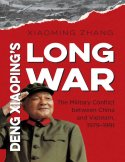Biden signs Xinjiang forced-labour bill into law
- Ban on imports from Xinjiang will go into effect in June, with disruptions to the global supply chain likely
- Law creates a “rebuttable presumption” that all goods sourced wholly or in part in Xinjiang are tainted by the use of forced labour in their production
US President
signed into law on Thursday a measure that will effectively ban all imports from China’s
Uygur autonomous region, a move likely to have significant ramifications for
s and global supply chains alike.
In a brief statement, Biden thanked Congressional leaders and the bill’s authors for their “leadership” on the overwhelmingly bipartisan legislation, but he did not host a signing ceremony as presidents sometimes do with high-profile bills.
nacting the bill signalled the Biden administration’s commitment to “combating forced labour, including in the context of the ongoing genocide in
”, said US Secretary of State Antony Blinken, referring to an official determination by the government that Beijing’s actions in the region constitute crimes against humanity.
Blinken praised the “new tools” provided by the legislation to both counter forced labour in
and to “further promote accountability for persons and entities responsible for these abuses.”
The new law creates a “rebuttable presumption” that all goods sourced wholly or in part in Xinjiang are tainted by the use of forced labour in their production – charges that Beijing denies. The ban will go into effect in June.
Once the ban is in place, companies will be able to appeal the prohibition only if they can provide “clear and convincing evidence” that their supply chains are free of the involvement of forced labour.
Experts say that standard will be close to impossible to meet, given the inability of independent auditors to gain unrestricted access to the region.
The law also directs the US government to sanction any individual in China deemed responsible for rights abuses related to forced labour.
The new law adds to growing international scrutiny of China’s policies in Xinjiang, dovetailing with criticism of the Winter Olympic and Paralympic Games in Beijing in two months; the US and other allies are refusing to send officials in protest.
“As the Chinese government tries to whitewash their genocide and claim a propaganda victory with the upcoming Olympics, this legislation sends a powerful, bipartisan message that the United States will not turn a blind eye,” Senator Jeff Merkley of Oregon, the bill’s lead Democratic sponsor in the Senate, said on Thursday.
The move to ban all Xinjiang imports follows a spate of US government actions to punish China over its policies in the region, including sanctions against officials, blacklisting of numerous Chinese companies, and other trade measures.
Senator Marco Rubio, the Florida Republican who was the bill’s author, called its signing into law the “most important and impactful action” taken by the US to combat forced labour in China to date. “It will fundamentally change our relationship with Beijing.”
The ban is an outlier among US import restrictions, which typically limit goods based on specific product types or individual suppliers, rather than entire regions.
The import ban will “reverberate through global cotton and solar markets”, researchers at the Peterson Institute for International Economics (PIIE) wrote.
Xinjiang is a dominant player in international supply chains of cotton; polysilicon, a material critical to the production of solar panels; and agricultural goods like tomatoes.
Even with existing federal restrictions on cotton and tomato imports from Xinjiang, exports from the region to the US more than doubled in the first quarter of 2021 to some US$64 million. That figure does not account for goods shipped to the US from other locations that use raw materials sourced in Xinjiang.
While the bill was a “constructive move”, the PIIE researchers noted that it would not address new allegations of forced transfer of Uygur labourers out of Xinjiang to other parts of China.
And while rights advocates have hailed the law as a valuable tool to crack down on suspected forced labour, they stress that its efficacy will hinge on the rigour with which the US Customs and Border Protection agency enforces it.
CBP has six months to develop an enforcement strategy, and during that time, a federal task force on forced labour will hold hearings and seek public comment on how best to prevent goods involving Xinjiang from entering the US.
China has assailed the legislation as a case of “economic bullying” under the pretence of human rights and has vowed countermeasures, but has yet to indicate what form any retaliation might take.
Previous US efforts to hold Beijing accountable for human rights abuses have seen the Chinese government respond with sanctions on individual lawmakers and congressional bodies.
The Chinese embassy in Washington did not immediately respond to a request for comment about the bill’s enactment.
Non-paywall

